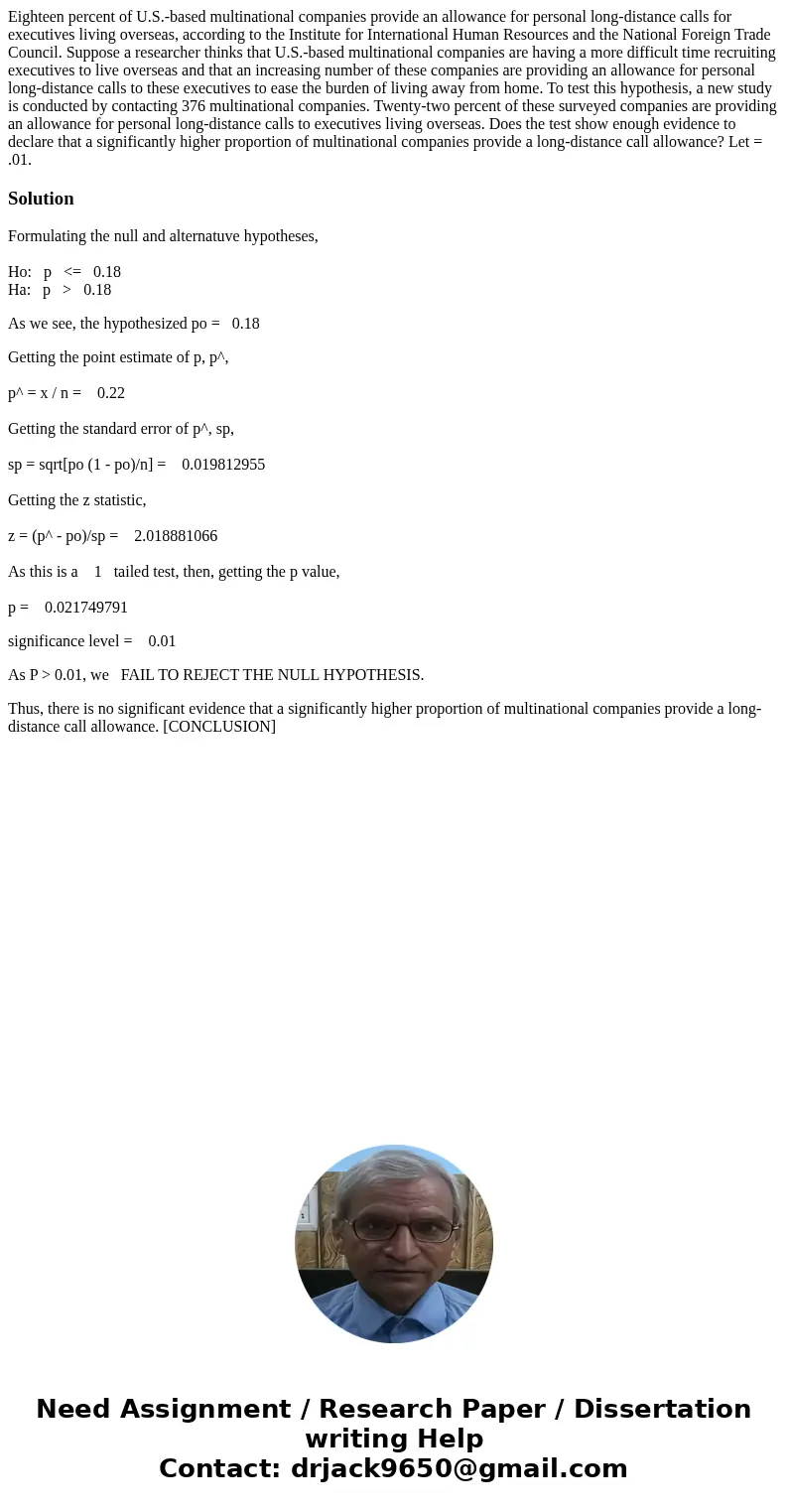Eighteen percent of USbased multinational companies provide
Eighteen percent of U.S.-based multinational companies provide an allowance for personal long-distance calls for executives living overseas, according to the Institute for International Human Resources and the National Foreign Trade Council. Suppose a researcher thinks that U.S.-based multinational companies are having a more difficult time recruiting executives to live overseas and that an increasing number of these companies are providing an allowance for personal long-distance calls to these executives to ease the burden of living away from home. To test this hypothesis, a new study is conducted by contacting 376 multinational companies. Twenty-two percent of these surveyed companies are providing an allowance for personal long-distance calls to executives living overseas. Does the test show enough evidence to declare that a significantly higher proportion of multinational companies provide a long-distance call allowance? Let = .01.
Solution
Formulating the null and alternatuve hypotheses,
Ho: p <= 0.18
Ha: p > 0.18
As we see, the hypothesized po = 0.18
Getting the point estimate of p, p^,
p^ = x / n = 0.22
Getting the standard error of p^, sp,
sp = sqrt[po (1 - po)/n] = 0.019812955
Getting the z statistic,
z = (p^ - po)/sp = 2.018881066
As this is a 1 tailed test, then, getting the p value,
p = 0.021749791
significance level = 0.01
As P > 0.01, we FAIL TO REJECT THE NULL HYPOTHESIS.
Thus, there is no significant evidence that a significantly higher proportion of multinational companies provide a long-distance call allowance. [CONCLUSION]

 Homework Sourse
Homework Sourse